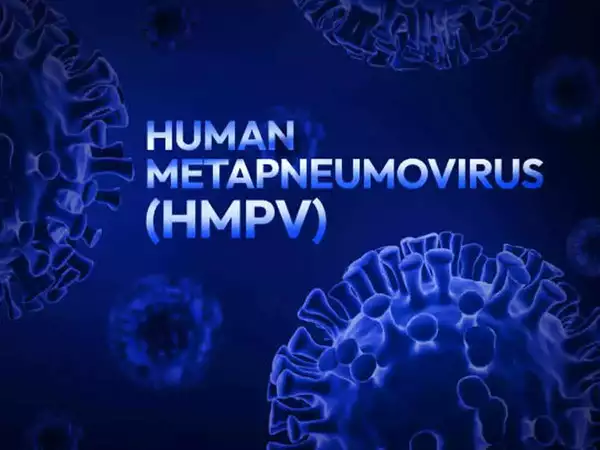Human Metapneumovirus (HMPV) is a common respiratory virus that affects individuals of all ages, causing symptoms that can range from mild cold-like signs to more severe respiratory distress. Although relatively unknown to the general public, HMPV is an important cause of respiratory illness, especially during the colder months when respiratory infections are more common. This blog post provides an overview of the HMPV virus, its symptoms, treatment options, and prevention strategies.
What is Human Metapneumovirus (HMPV)?
HMPV is a member of the Paramyxoviridae family, which also includes the viruses that cause conditions like measles and mumps. The virus was first identified in 2001, and since then, it has been recognized as a major cause of respiratory infections globally. It is primarily spread through droplets from coughing, sneezing, or close contact with infected individuals, much like the flu or common cold.
HMPV can lead to a variety of illnesses, including the common cold, bronchitis, and pneumonia, and it is often confused with other respiratory infections such as RSV (Respiratory Syncytial Virus) and the seasonal flu. In most cases, HMPV is self-limiting, but it can cause serious complications in certain populations, such as young children, the elderly, and those with weakened immune systems.
Symptoms of HMPV
The symptoms of HMPV vary depending on the age and health status of the individual. In general, the virus causes respiratory symptoms similar to those of a cold or flu. Common symptoms include:
- Fever: A moderate to high fever is one of the first signs that may signal an HMPV infection.
- Cough: A persistent dry cough or a cough with mucus is often seen in patients infected with HMPV.
- Runny or Stuffy Nose: Nasal congestion and a runny nose are typical early symptoms.
- Sore Throat: Some individuals may experience a scratchy or sore throat, adding to the discomfort.
- Shortness of Breath: Severe cases can lead to breathing difficulties, especially if the virus causes pneumonia or bronchitis.
- Wheezing: In children and individuals with pre-existing respiratory conditions, wheezing and labored breathing can occur.
- Fatigue and Malaise: Like other viral infections, HMPV can cause general feelings of fatigue, weakness, and overall malaise.
In most healthy individuals, HMPV symptoms tend to be mild and resolve within a week or two. However, the virus can cause more serious illness, especially in infants, older adults, and those with compromised immune systems.
Treatment for HMPV Virus
Currently, there is no specific antiviral treatment for Human Metapneumovirus. Management mainly focuses on relieving symptoms and providing supportive care. Depending on the severity of the infection, treatment may include:
- Rest and Hydration: Ensuring adequate fluid intake and getting enough rest are crucial for recovery from the virus.
- Over-the-Counter Medications: Over-the-counter medications like acetaminophen (Tylenol) or ibuprofen (Advil) can help reduce fever and alleviate pain. Decongestants or saline nasal sprays may also provide relief from nasal congestion.
- Oxygen Therapy: In more severe cases, especially for those who develop pneumonia or respiratory distress, supplemental oxygen may be required.
- Hospitalization: In certain cases, such as when complications like pneumonia occur, hospitalization may be necessary. Children and elderly patients, in particular, may need to be monitored more closely.
While antibiotics are not effective against viruses, if a secondary bacterial infection is suspected, such as bacterial pneumonia, your healthcare provider may prescribe antibiotics.
Prevention of HMPV
Preventing HMPV largely involves practicing good hygiene and avoiding exposure to infected individuals. Below are some important strategies for preventing the spread of Human Metapneumovirus:
- Frequent Handwashing: Regularly washing your hands with soap and water, especially after coughing or sneezing, is one of the most effective ways to prevent the spread of respiratory infections.
- Covering Mouth and Nose: If you have symptoms of a cold or cough, cover your mouth and nose with a tissue or the crook of your elbow to prevent droplets from spreading to others.
- Avoiding Close Contact: Avoid close contact with infected individuals, especially in crowded places like schools or healthcare settings.
- Disinfecting Surfaces: Viruses like HMPV can survive on surfaces for a period of time. Disinfecting frequently touched objects, such as door handles, phones, and keyboards, can help limit the spread of the virus.
- Boosting Immunity: Eating a balanced diet rich in vitamins and minerals, getting regular exercise, and ensuring adequate sleep are all important for strengthening the immune system.
- Vaccination: While there is currently no vaccine for HMPV, research into the development of a vaccine is ongoing. In the meantime, vaccinating against other respiratory infections, such as influenza and pneumonia, can help reduce the overall burden of respiratory diseases.
When to Seek Medical Help
Although most cases of HMPV resolve on their own, it’s important to seek medical care if you or a loved one experiences the following:
- Difficulty breathing or shortness of breath
- Persistent high fever (above 101°F)
- Severe chest pain or wheezing
- Symptoms that worsen after the first few days
- Excessive drowsiness or confusion
If you live in or near Jamshedpur, you can consult the best multispeciality hospital in Jamshedpur for proper diagnosis and treatment of HMPV. Hospitals with a strong respiratory care department can offer advanced treatments and ensure optimal care for individuals experiencing severe symptoms.
Conclusion
Human Metapneumovirus (HMPV) is a significant cause of respiratory infections worldwide, especially during colder months. While most cases are mild and self-limiting, certain groups—like young children, the elderly, and those with weakened immune systems—are at risk for more severe complications. Being aware of the symptoms, seeking timely treatment, and following preventive measures can help reduce the spread and severity of HMPV infections. If you experience symptoms of HMPV, it’s crucial to consult a healthcare provider for accurate diagnosis and appropriate care.











